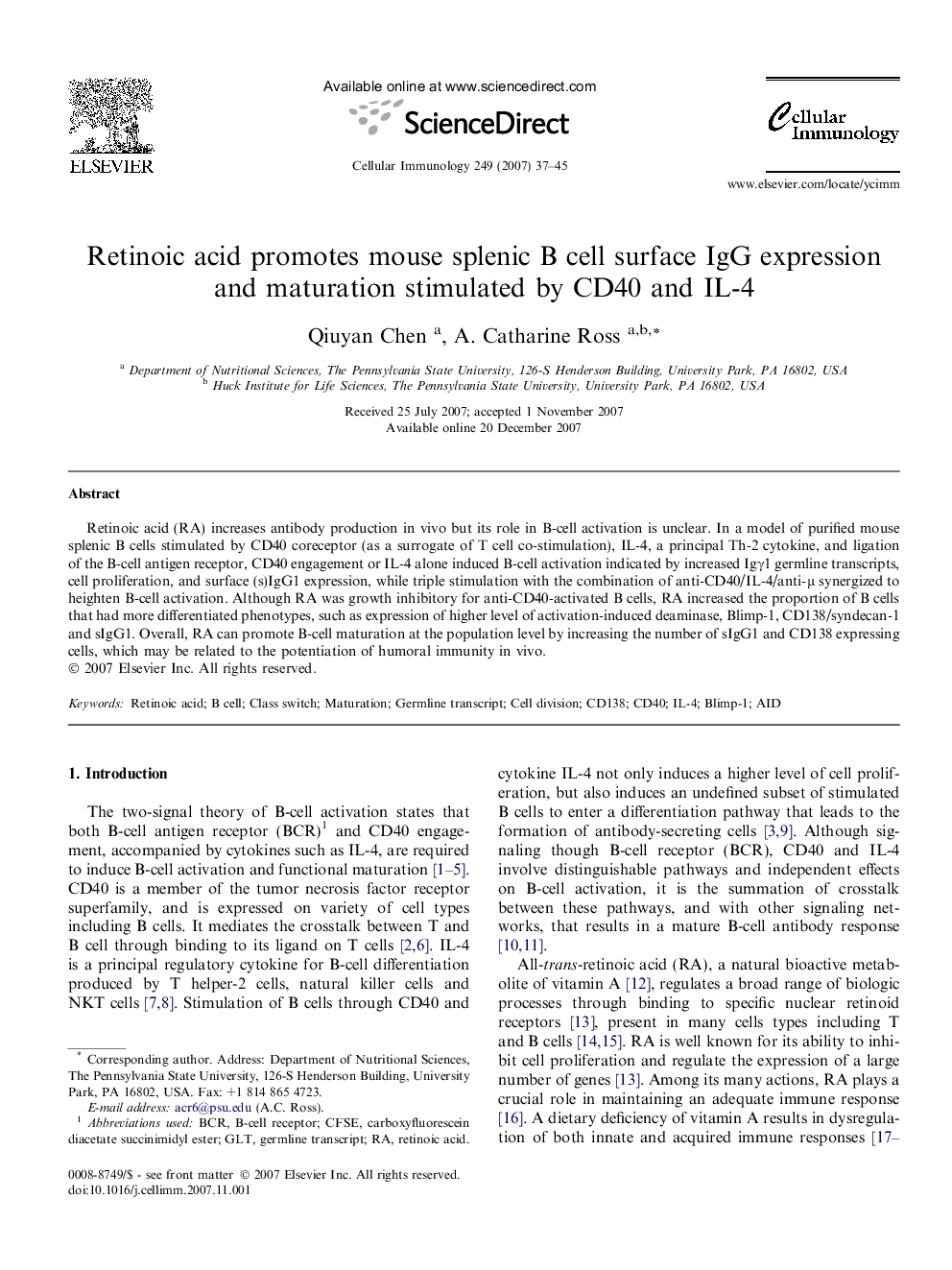| Article ID | Journal | Published Year | Pages | File Type |
|---|---|---|---|---|
| 2167976 | Cellular Immunology | 2007 | 9 Pages |
Retinoic acid (RA) increases antibody production in vivo but its role in B-cell activation is unclear. In a model of purified mouse splenic B cells stimulated by CD40 coreceptor (as a surrogate of T cell co-stimulation), IL-4, a principal Th-2 cytokine, and ligation of the B-cell antigen receptor, CD40 engagement or IL-4 alone induced B-cell activation indicated by increased Igγ1 germline transcripts, cell proliferation, and surface (s)IgG1 expression, while triple stimulation with the combination of anti-CD40/IL-4/anti-μ synergized to heighten B-cell activation. Although RA was growth inhibitory for anti-CD40-activated B cells, RA increased the proportion of B cells that had more differentiated phenotypes, such as expression of higher level of activation-induced deaminase, Blimp-1, CD138/syndecan-1 and sIgG1. Overall, RA can promote B-cell maturation at the population level by increasing the number of sIgG1 and CD138 expressing cells, which may be related to the potentiation of humoral immunity in vivo.
